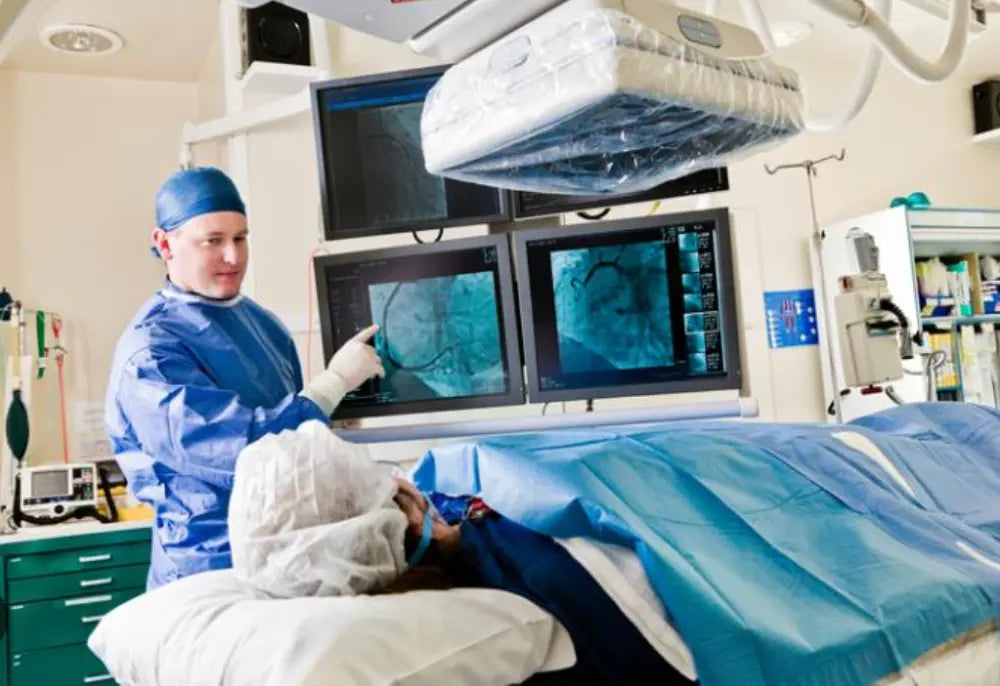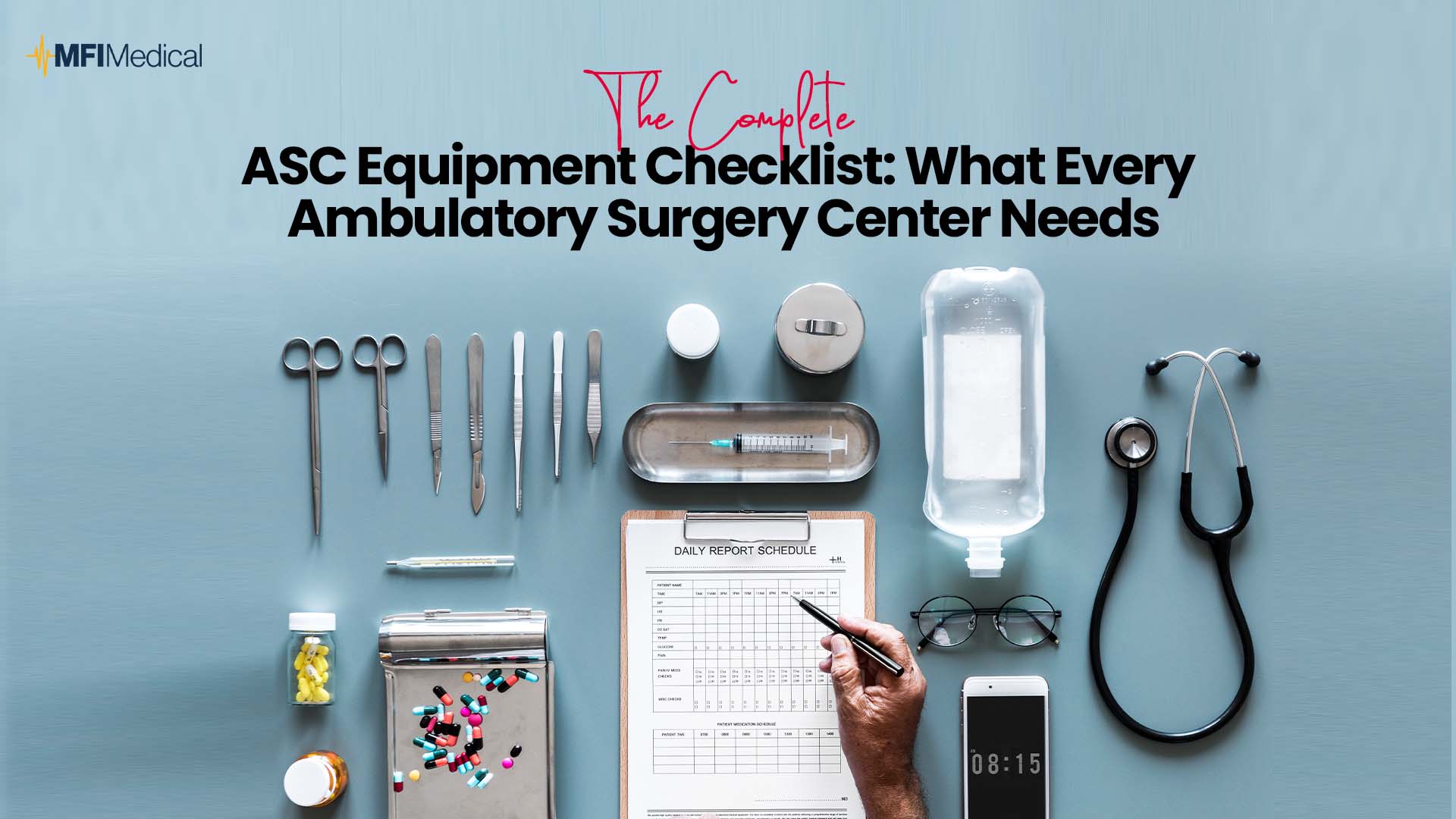Cardiology departments require specialized equipment to ensure accurate diagnostics, effective treatment, and ongoing patient monitoring. MFI Medical offers a broad range of high-quality cardiology equipment designed to meet the specific needs of cardiologists. Here’s a guide to the essential equipment categories you should consider for your cardiology practice.
Top Cardiology Equipment Categories

1. Blood Pressure Monitors
- Essential for monitoring cardiovascular health, blood pressure monitors provide critical data for diagnosing and managing heart conditions.
2. Defibrillation Equipment
- Defibrillators are crucial for providing life-saving treatment in cases of sudden cardiac arrest, a common emergency in cardiology.
3. Diagnostic Ultrasounds
- Used to visualize the heart and blood vessels, diagnostic ultrasounds are key for assessing heart structure and function.
4. ECG/EKG Machines
- Electrocardiogram (ECG/EKG) machines are fundamental in cardiology for measuring the electrical activity of the heart to identify and monitor heart conditions.
5. Electrosurgical Systems
- Utilized in various cardiac procedures, electrosurgical systems help perform precise surgical interventions such as pacemaker insertions.
6. EMG EP Systems
- Electromyography (EMG) and Evoked Potentials (EP) systems are used to measure the electrical activity of the heart muscle and nerves, assisting in complex diagnostics.
7. Exam Tables
- Comfortable and adjustable exam tables are crucial for patient examinations and minor cardiological procedures.
8. Headlights
- Provide direct illumination during detailed cardiac examinations or surgical procedures, ensuring optimal visibility.
9. Holter Monitors
- These portable devices record continuous ECG, usually over 24 to 48 hours, to monitor heart activity as patients go about their daily activities.
10. Hospital Beds
- Specialized hospital beds that can adjust for patient comfort and emergency responsiveness are essential in cardiology units.
11. IV Poles
- Support the administration of IV fluids and medications, critical for patients undergoing treatment for cardiac issues.
12. Laboratory Equipment
- Advanced lab equipment is needed for testing blood samples and other diagnostic procedures essential in cardiology.
13. Loupes
- Magnifying loupes are used during intricate cardiac procedures to enhance precision and detail.
14. Medical Carts
- Organize and transport medical supplies and equipment within easy reach during examinations and treatments.
15. Medical Scales
- Accurate weight measurement is vital for dosing medications and assessing health status in cardiac patients.
FAQ
Q: Why are ECG/EKG machines important in cardiology?
A: ECG/EKG machines help detect heart abnormalities, monitor cardiac conditions, and guide treatment decisions.
Q: How do diagnostic ultrasounds benefit cardiologists?
A: They provide a non-invasive method to view the heart and vascular system, crucial for diagnosing various heart diseases.
Q: What role do Holter monitors play in cardiac care?
A: Holter monitors provide continuous heart rate monitoring to detect irregularities that might not appear during a standard ECG exam.
Conclusion

Equipping your cardiology department with the right tools is crucial for providing effective treatment and ensuring patient safety. MFI Medical’s selection of cardiology equipment, from blood pressure monitors to Holter monitors and diagnostic ultrasounds, offers the necessary instruments to meet the complex needs of heart patients. Invest in high-quality medical equipment to support your cardiological interventions and improve patient outcomes.




